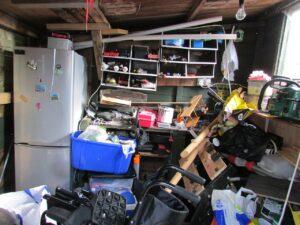Guest post by Stephanie Novak, LCSW, CRSS
When you think of an “addict,” a stereotypical image most likely pops into your head of someone slumped over on the street looking gaunt, dirty, and unwell. Despite that stereotype, addiction does not discriminate. It affects every socioeconomic status, race, gender, sexual orientation, etc. Social learning has taught us to view a person struggling with a substance use disorder as less than and lacking the willpower and strength to stop. This stigmatizing viewpoint can lead those with addiction problems to continue on this damaging path. So if your family member or friend is affected by addiction, you might be questioning how to motivate an addict to stay clean despite a stigmatizing environment.
Causes of addiction
Before you delve into trying to build motivation for addicts, it is first important to understand what they are dealing with. There is no single underlying cause of addiction. There can be:
- biological factors (e.g. genes, mental and physical health history, developmental stage, etc.)
- environmental reasons (e.g. social and/or peer influences, school challenges, home life, etc.)
- trauma history (e.g. childhood trauma, sexual assault/abuse, domestic violence, historical trauma, etc.)
- a combination of these
Your brain structure, functioning, chemistry, communication pathways, homeostasis, etc. all change with addiction. What began as a way to feel – or not to feel – soon becomes a sense of pleasure that the brain determines it cannot live without. The brain ultimately starts to view substances as a way to survive. Uncomfortable withdrawal symptoms can start if the substance doesn’t become available. So self-control is not as easily within reach.
Although the cause of addiction is a complex one, the neurotransmitter dopamine plays a significant role in it. Dopamine receptors in the brain, which release this “reward chemical” into your brain, reinforce enjoyable sensations by linking what feels good with our desire to feel it again.
Tolerance levels are also affected by dopamine. As one repeatedly uses substances, the reward center of our brain becomes overwhelmed and creates a weaker response. Eventually, it needs a larger amount of substances to obtain the effect (the “high”) that you’re wanting to reach.
Related Reading:Addiction and Substance Abuse
Why is all of this brain stuff important? If you want to know how to motivate an addict to stay clean, it’s critical to understand that the area of the brain responsible for motivation, rational thought, judgment, and memory has been compromised by this addictive cycle in the brain. The addict’s sense of motivation is not working as it should.
How to Deal with Addiction Recovery
Despite these biological challenges, it is still possible for the addict in your life to get started on their recovery. Challenging tunnel vision and tuning into how the costs outweigh the benefits can help those with addictions develop motivational strength to change.
The stages of change model can be a way to better understand how motivation and addiction work together – and how to overcome addiction. There are four stages within this model: pre-contemplation, contemplation, preparation, and action. Understanding these stages can help you to know how to motivate an addict to stay clean.
- Pre-contemplation is the stage where a person does not realize how their substance use has negatively affected their life, even if others around them do. When negative consequences begin to become more apparent, it can possibly lead the addict into the contemplation stage.
- Contemplation is the stage where the person starts to think about changing their addictive behavior. In this stage they may be open to guidance from others and to thinking about recovery goals, but they are not yet ready to make life changes. Through learning, self-motivation, and encouragement from others, a person can move into the preparation stage.
- Preparation is where recovery planning takes place. For example, the addict might think about how they might stop using, or they might look into getting a therapist or locating the nearest 12-Step or SMART Recovery groups.
- The action stage is where we get to observe actual changes in behavior (for example, going to the 12-Step meeting) as well as the development of coping skills needed to overcome cravings and urges.
Maintenance is another important stage in recovery management. You can focus on having tools and resources available if slips or relapses occur. Developing coping skills is essential in maintaining recovery and/or sobriety. Healthy coping mechanisms for handling stress and anger, along with other intense emotions, strengthen our resiliency and allow us to keep moving forward despite adversity.
Related Reading: 25 Overcoming Addiction Quotes that will Inspire You
It is never too late to return to different stages of this model if the person experiences a relapse. The process is seldom linear and everyone works through recovery in their own way. By learning how to take care of their emotional well-being and appropriately handling problems in their life, those struggling with substance use disorders have the opportunity to live life for themselves again.
How to Motivate an Addict to Stay Clean
Although the recovery journey is a personal one, it doesn’t have to be done in isolation. External motivation and guidance are helpful. Feeling supported and separate from the addiction can reduce feelings of stigma, shame, and self-blame. If you or a loved one is struggling with addiction you can help support them by being aware that they may have decreased motivation due to changes in the brain. Understanding the stages of addiction can help you to assess what stage of change the addict is in. You can then point out pros and cons as appropriate. For example, “I want your health not to be damaged” or “I want a relationship that’s not clouded by addiction”, etc.
Ultimately you do need to recognize that it’s up to the addict to make a change. No matter what motivators are in place on the path to recovery, nothing is more meaningful and necessary than motivation from within and the hope that change is possible. We can help you or a loved one struggling with addiction make changes to overcome it. If you’re in the northern Illinois area, contact us to get started at our offices located in Glen Ellyn, Sycamore, and Chicago (Jefferson Park neighborhood).
Related Reading: Why Overcoming Addiction on Your Own is Possible
Blog by Stephanie Novak, LCSW, CRSS
Stephanie is a Licensed Clinical Social Worker (LCSW) and also a Certified Recovery Support Specialist (CRSS). She has experience working in trauma recovery, mental health and co-occurring disorders, geriatric and aging issues, caregiver stress, grief and loss, racial identity, chronic pain and/or illness, relationship and family dynamics, and survivors of incest and rape. Stephanie works with older adolescents, adults, and seniors. She uses a person-centered and strengths-based approach, which are just fancy ways of saying that she creates space for self-discovery and highlights the positive qualities we often ignore or can’t see in ourselves. She also utilizes mindfulness techniques such as breathing, grounding, and meditation.




